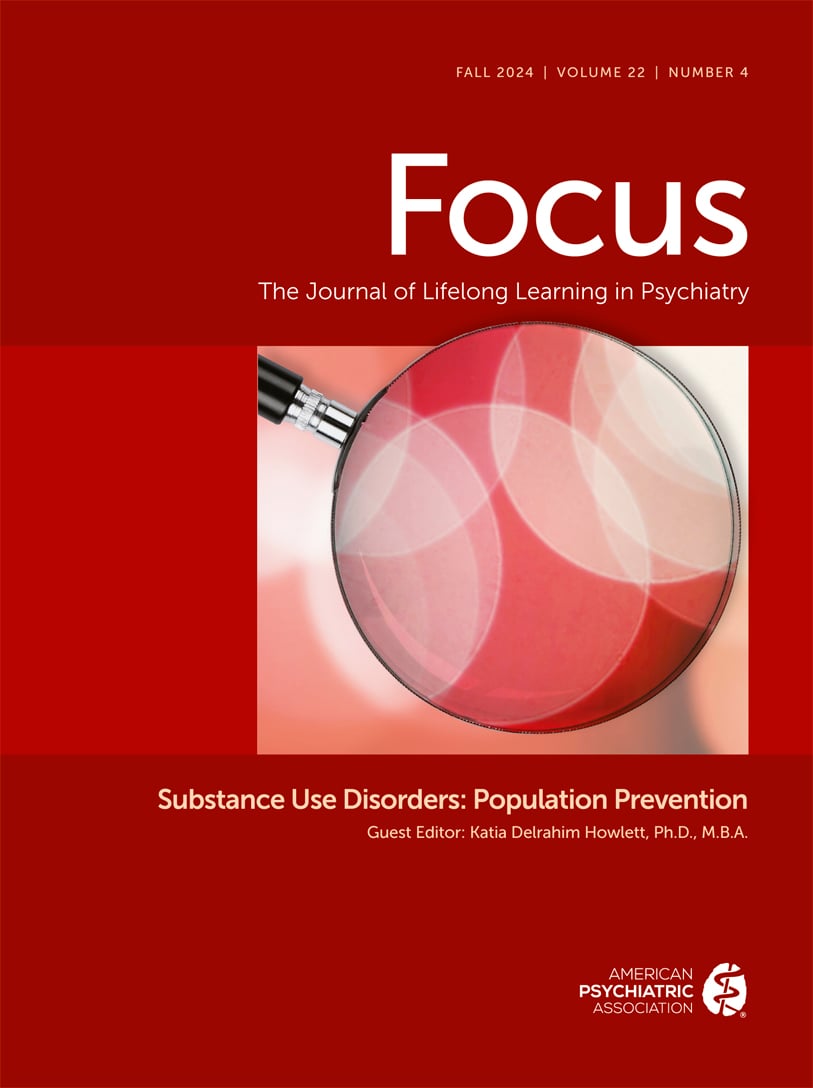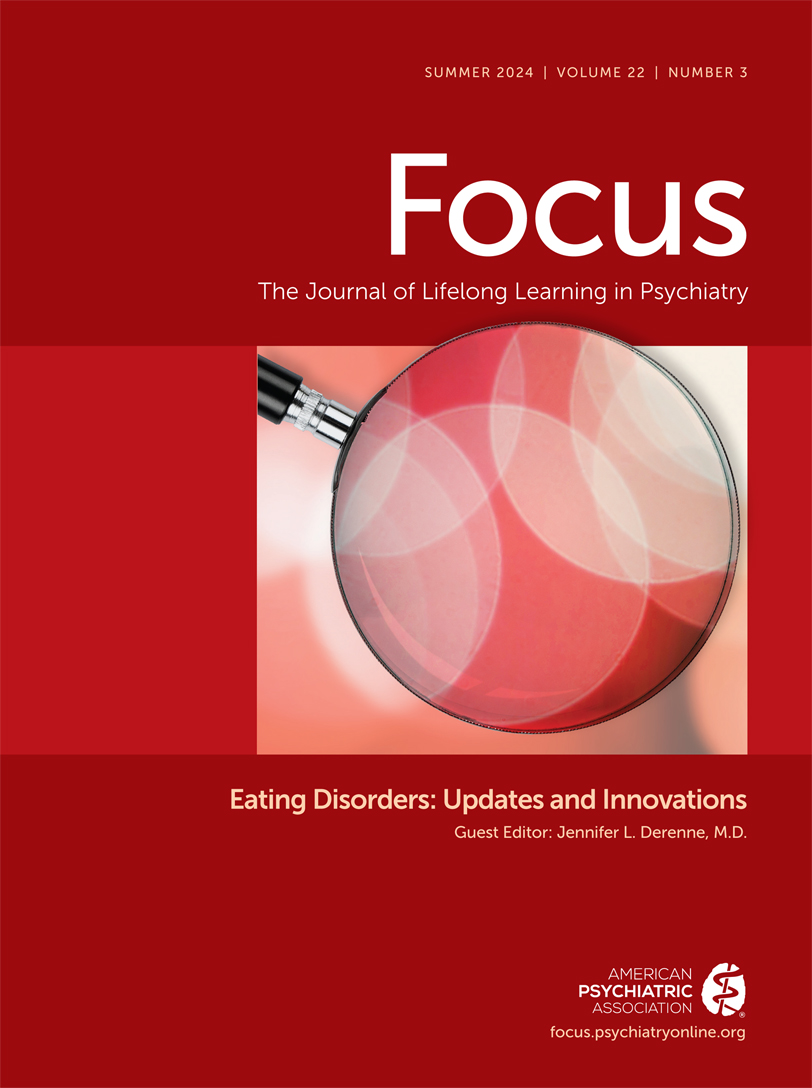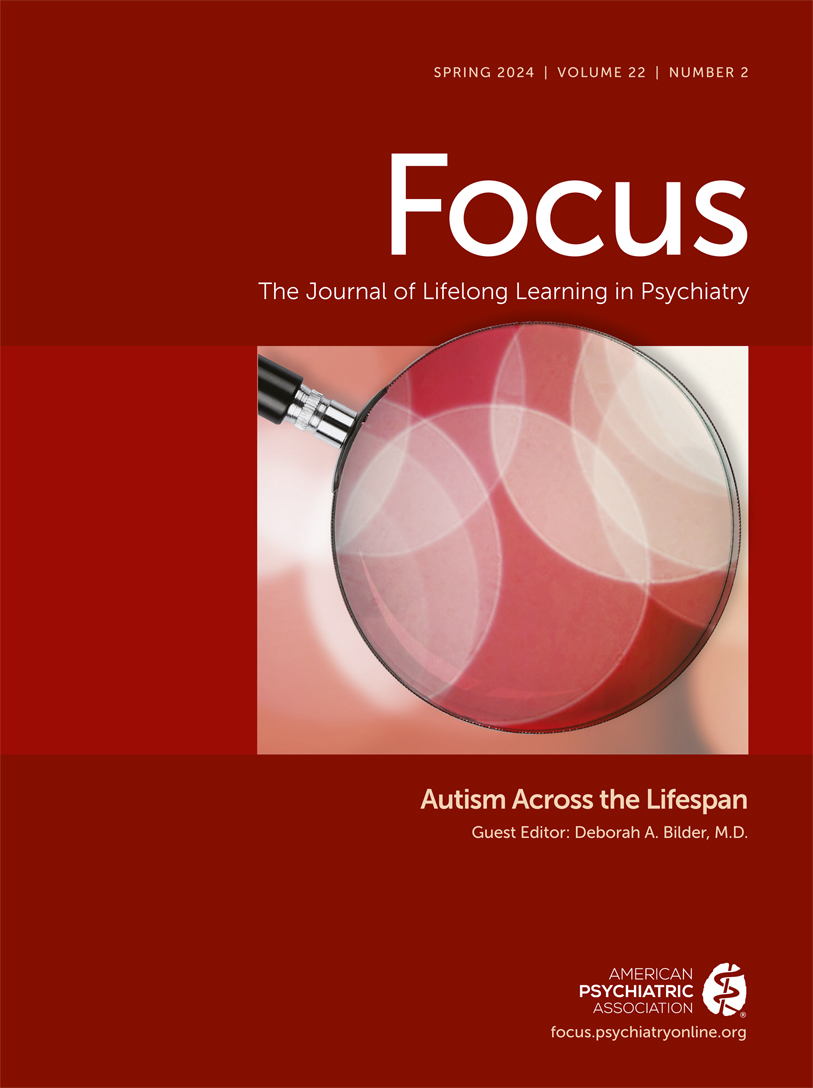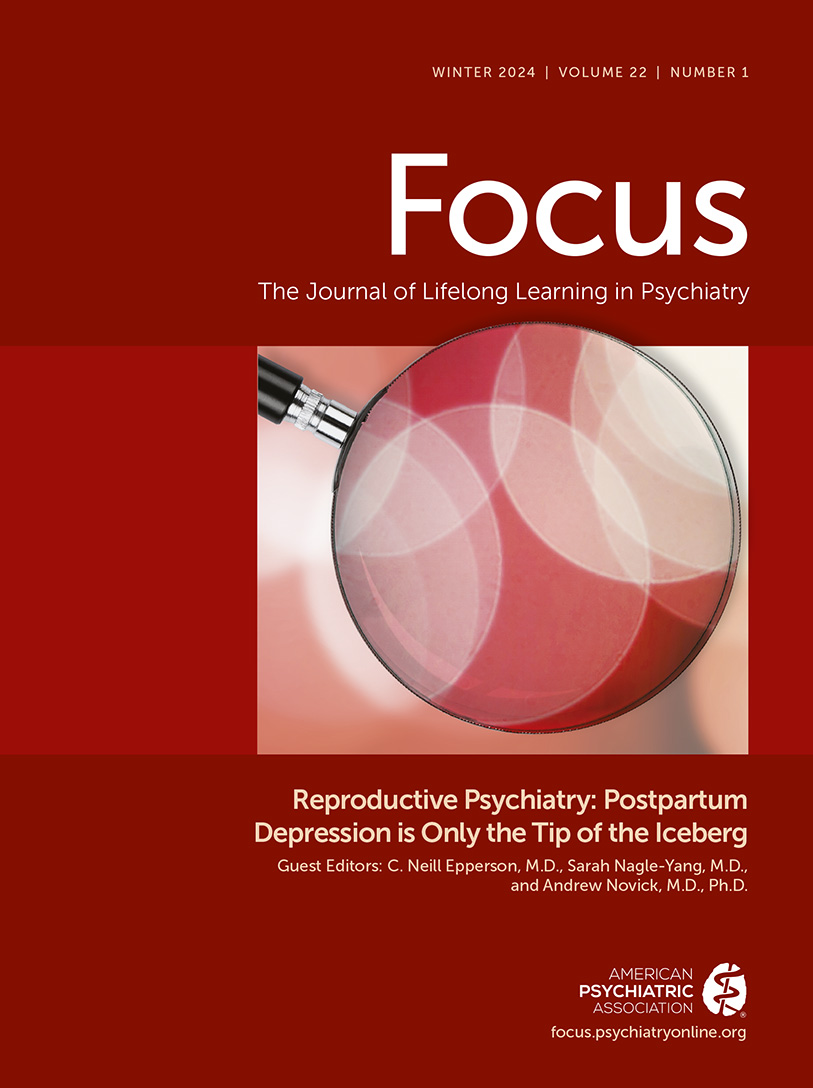Focus
- Volume 1
- Number 4
- October 2003
EDITORIAL
CLINICAL SYNTHESIS
Publication date: 01 October 2003
Pages339–344Caring for people living with mental illness is ethically complex, ethically committed work. The ethical complexity derives in part from the ways in which psychiatric disorders affect a person’s experiences and sense of self. Mental illness influences ...
https://doi.org/10.1176/foc.1.4.339REVIEW
Publication date: 01 October 2003
Pages349–372The body of law applied to the practice of psychiatry does not differ from that of medicine in general. Nevertheless, the diagnosis, treatment, and management of patients with psychiatric disorders present not only unique clinical and ethical concerns but ...
https://doi.org/10.1176/foc.1.4.349INFLUENTIAL PUBLICATION
Publication date: 01 October 2003
Pages389–395Objective: Community-based treatment of persons with serious mental illness requires providers to become involved in clients’ personal lives to a greater degree than does hospital-based treatment. The study examined attendant ethical dilemmas, especially ...
https://doi.org/10.1176/foc.1.4.389Publication date: 01 October 2003
Pages396–406Objective: The author provides an overview of the current status of privacy in psychiatric treatment, with particular attention to the effects of new federal regulations authorized by the Health Insurance Portability and Accountability Act (HIPAA). Method:...
https://doi.org/10.1176/foc.1.4.396Publication date: 01 October 2003
Pages407–414Objective: Informed consent is built upon the elements of information, decisional capacity, and voluntarism. Of these elements, voluntarism in clinical and research consent is the least well understood. This has interfered with the ability to resolve key ...
https://doi.org/10.1176/foc.1.4.407Publication date: 01 October 2003
Pages415–421Objective: This paper outlines a number of misapplications of boundary theory in both regulatory settings and clinical situations. Method: The authors review clinical vignettes that illustrate the difference between boundary crossings, which lead to ...
https://doi.org/10.1176/foc.1.4.415Publication date: 01 October 2003
Pages422–426Because psychiatrists cannot include everything they observe and everything the patient says in the medical chart, they must select and tailor what goes into the chart. They should tailor the chart to focus on what is significant for the diagnosis and ...
https://doi.org/10.1176/foc.1.4.422Publication date: 01 October 2003
Pages427–435Despite the dramatic increase over recent years in the research and teaching of medical ethics, there exists no theoretical framework within which to conceptualize ethical problems in medicine, to say nothing of solutions to these problems. The model ...
https://doi.org/10.1176/foc.1.4.427Publication date: 01 October 2003
Pages436–444Supervision of psychiatric residents provides a natural context for clinical ethics teaching. In this article, the authors discuss the need for ethics education in psychiatry residencies and describe how the special attributes of supervision allow for ...
https://doi.org/10.1176/foc.1.4.436Past Issues
View Issues Archive
Vol. 22 | No. 4

Vol. 22 | No. 3

Vol. 22 | No. 2
